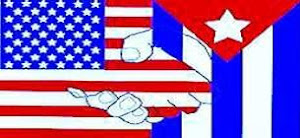Oliver Stone's provocative and fascinating look at Latin America at the end of the Bush era and the beginning of the Obama administration, should be viewed by anyone interested in understanding both our difficult history and ongoing struggles with our Latin American neighbors. Stone takes us on a journey through Venezuela, Bolivia, Paraguay, Argentina, Cuba, Ecuador, and Brazil in 2008 and 2009 bringing us face to face with their respective leaders and gives us glimpses of their human sides. Here we learn that things may not be as we have been necessarily told in the mass media with respect to Hugo Chavez and Venezuela and our U.S. involvement in the coup attempt of 2002. Each leader expresses solidarity with his/her counterparts in a common theme of seeking to grow and develop each nation independently of U.S. and european interests, seeking to find their own way. Much of the frustration expressed with the U.S. is due to our interference and efforts to control or dominate economies in Latin America whether it is under the pretext of "free trade" or neoliberal economic philosophy. This approach has been largely ineffective in maintaining economic stability and the cause of social instability in the region. The results can be seen in the social unrest created when basic food staple prices are raised in response to IMF directives. The fact is our efforts in Latin America have not eradicated poverty and only have had limited success in economic development. Our unilateralist approach to dealing with a multilateral world seems to be hindering the progress of improving our foreign relations in general.
.
Some of what we learn is disturbing and enlightening. When former Argentine President Nestor Kirchner met with former President George W. Bush at the Summit of the Americas in Mar de Plata, we are shocked to learn when Kirchner suggests that America can best help its neighbors in Latin America with a Marshall Plan, he is categorically rejected by W who tells Kirchner that a Marshall Plan was simply a Democratic party idea, and that instead war would better stimulate the economy, just like he was doing for our country with Iraq and Afghanistan, stimulating the economy through war! Mrs. Kirchner, now Argentina's President, reminds the audience that Latin America now has elected leaders that actually look like the people they represent. When Ecuadorean President Correa demanded the closure of the U.S. base in Manta, he countered our demand to keep the American base on the condition that Ecuador could establish its own military base in Miami, FL! Suffice it to say we are closing our base in Ecuador. Bolivia's Morales invites one to consider that the war on drugs has at its foremost, geopolitical ends to maintain U.S. control and military presence in Latin American countries rather than solve the problem. Every leader expresses high hopes that the Obama administration will be different than Bush. Chavez states his hope that Obama will be the FDR of our time and establish a new deal for all. Brazil's Lula expresses his satisfaction of no longer being under the yoke of the International Monetary Fund, sharing that when he paid off the last IMF loan, the IMF bankers hesitated to accept the final payment. He also expressed the fulfillment of being debt free and able to forge an independent course for his country and provide leadership to the region. Lula states conditions that will immediately improve U.S. Latin America relations including:
1) Lifting the embargo on Cuba
2) President Obama meeting one on one with President Chavez.
All state a love and admiration for the American people and a desire for good relations with us on an equal footing in mutual respect. Their issues with the U.S. are with our foreign policy, which obviously needs updating and revision. They beg the question to us whether we want to be meaningfully involved with our neighbors or remain a source of historical resentment. The United States has intervened fifty five times in Latin America.
1) Lifting the embargo on Cuba
2) President Obama meeting one on one with President Chavez.
All state a love and admiration for the American people and a desire for good relations with us on an equal footing in mutual respect. Their issues with the U.S. are with our foreign policy, which obviously needs updating and revision. They beg the question to us whether we want to be meaningfully involved with our neighbors or remain a source of historical resentment. The United States has intervened fifty five times in Latin America.
.
As we seek to improve our relations with Latin America, we need to develop what I call 360 degree critical thinking, being able to understand an issue from all sides. This approach actually leads to forging solutions to problems and resolving conflict. Of the documentaries I have seen that can teach you how to think in this manner, I consider mandatory viewing by anyone interested in diplomacy and international relations to see Errol Morris' The Fog of War (with Robert McNamara). I now add Oliver Stone's South of the Border to that list. Don't miss this documentary...
.
To learn more about South of the Border and where and how you can see it, please visit:
http://www.southoftheborderdoc.com/
To learn more about South of the Border and where and how you can see it, please visit:
http://www.southoftheborderdoc.com/










0 Comments:
Post a Comment